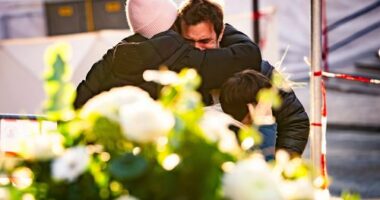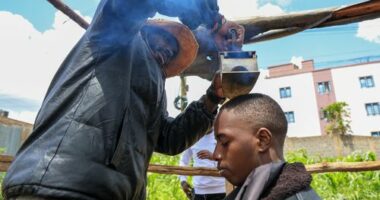Share this @internewscast.com
From witches to star seeds, Islam to Orthodox Christianity, the show Insight engages with individuals who have embraced faith and spirituality, as well as those who have distanced themselves from organized religion. You can watch the episode titled “Spiritual Divide” on SBS On Demand.
As a young adult, Dane Cousins had no interest in any form of religion. “I was a staunch atheist, believing I could never have faith in anything,” he shared with Insight. His perspective shifted at the age of 21, one day after leaving his university. “Out of nowhere, I felt an external presence communicating with me, something divine… I was faced with a choice between God or death, so I chose God.”
‘I’d tried everything else, and it was time to try God’
Now aged 24, Dane has delved into various religions and selected Eastern Orthodoxy for its “sacred worship practices” and “uninterrupted lineage.” He appreciates that this Christian branch is not about comfort. “[Other Christian services] seem to be entertainment-focused with bands, music, and dances, which is not my purpose for attending.”
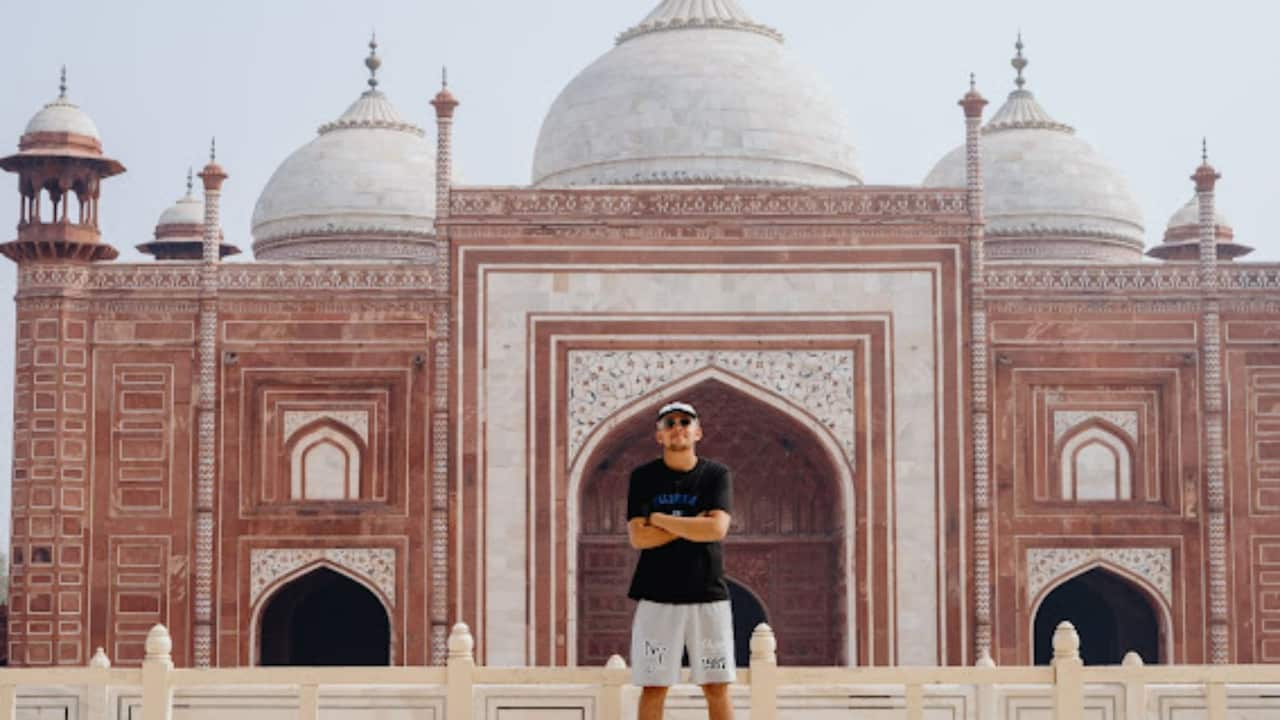
Evan says he had a religious of heart visiting the Taj Mahal last year. Source: Supplied
One day, a colleague invited him to a Sunday service at her Pentecostal church.
Evan says he has never looked back from that Sunday afternoon, seeing so many young people together.
Gen Z’s spiritual and religious rise
“I owned a car, had a promising career, was pursuing an engineering degree; everything seemed perfect… yet I felt profoundly empty without understanding why.”
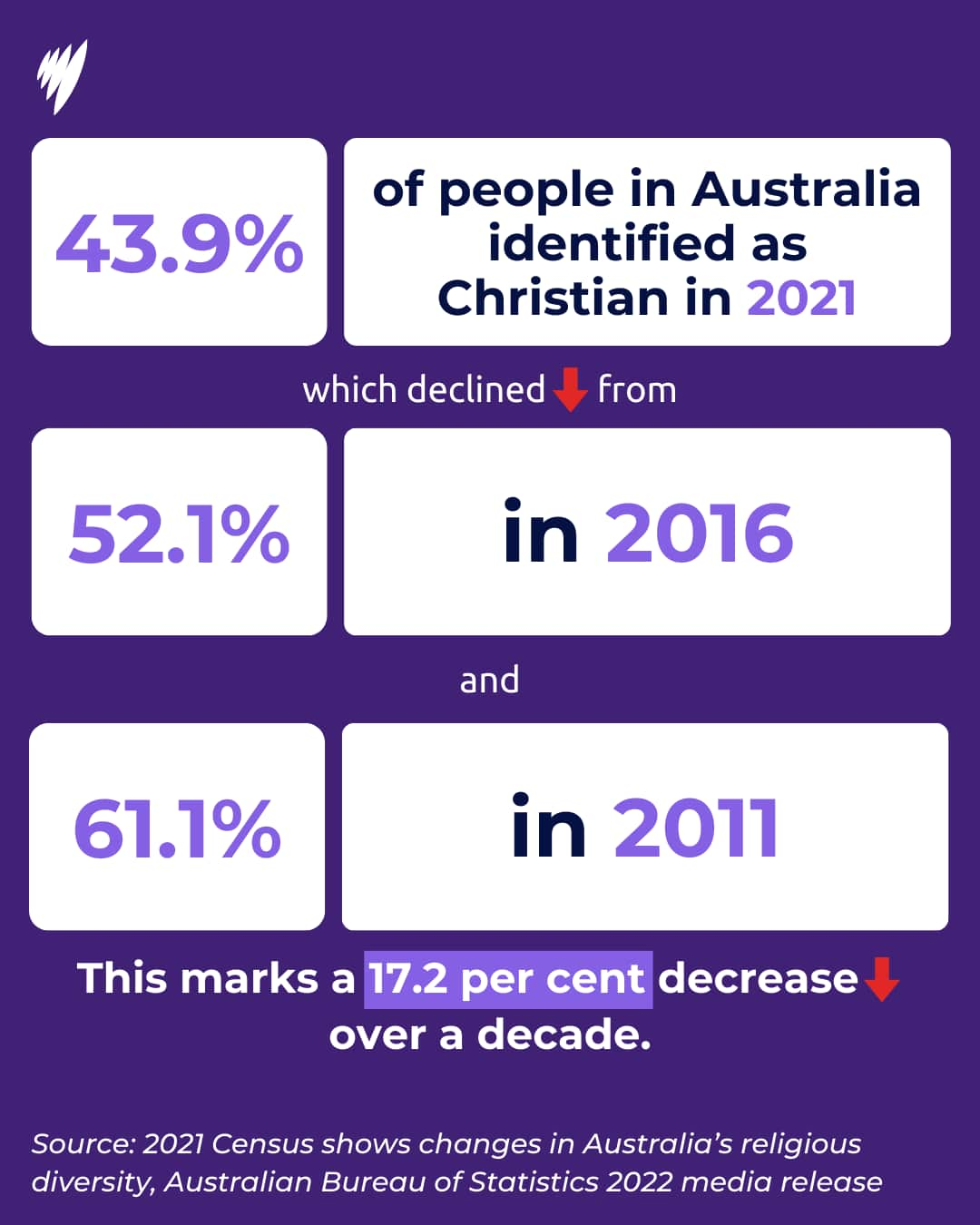
The 2021 Census highlighted a decline in Australians identifying as Christian. Source: SBS
Dr Anna Halafoff, an associate professor of Sociology at Deakin University, specialises in spirituality and says there are certain groups within Christianity experiencing growth.
According to the 2021 Census, 43.9% of Australians identified as Christian, a decline from 52.1% in 2016 and 61.1% in 2011, marking a 17.2% drop over ten years. The 2022 NCLSR survey also highlighted that 34% of Gen Z females believe in “some sort of spirit or life force,” compared to 26% of Gen Z males.
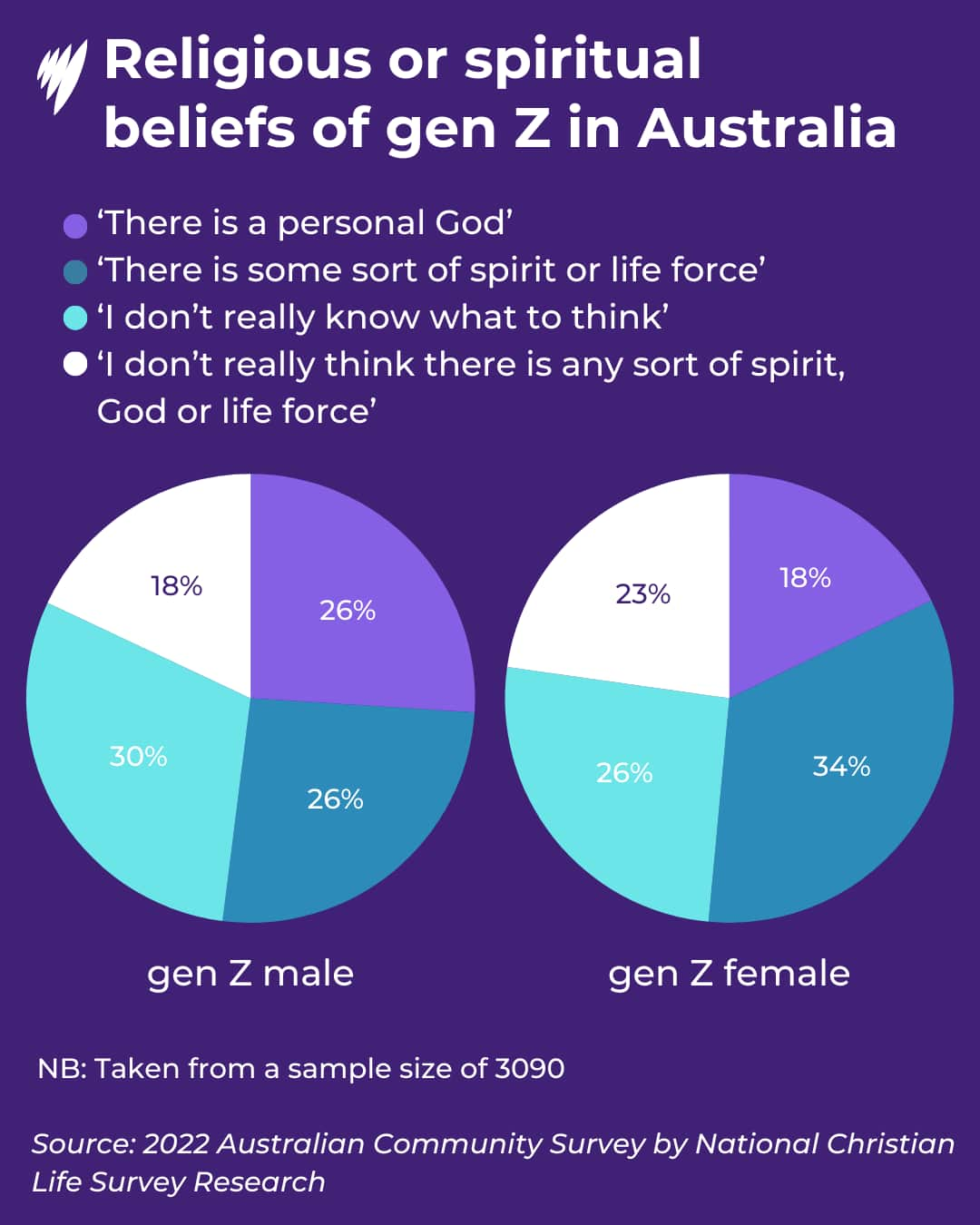
Some research suggests that more male members of gen Z identify as religious than female members do.
Halaloff says there is also substantive numbers of young people who stay in the religion they’re born into; these people can be described as nominally religious.
“Often people get involved in religious groups through significant relationships, whether that’s with peers or through a romantic relationship.”
Spirituality within organised religion
“When you belong to both a minority ethnic group and a minority religion in a country like Australia, it’s typical for cultural and religious identities to merge,” Soaliha commented.
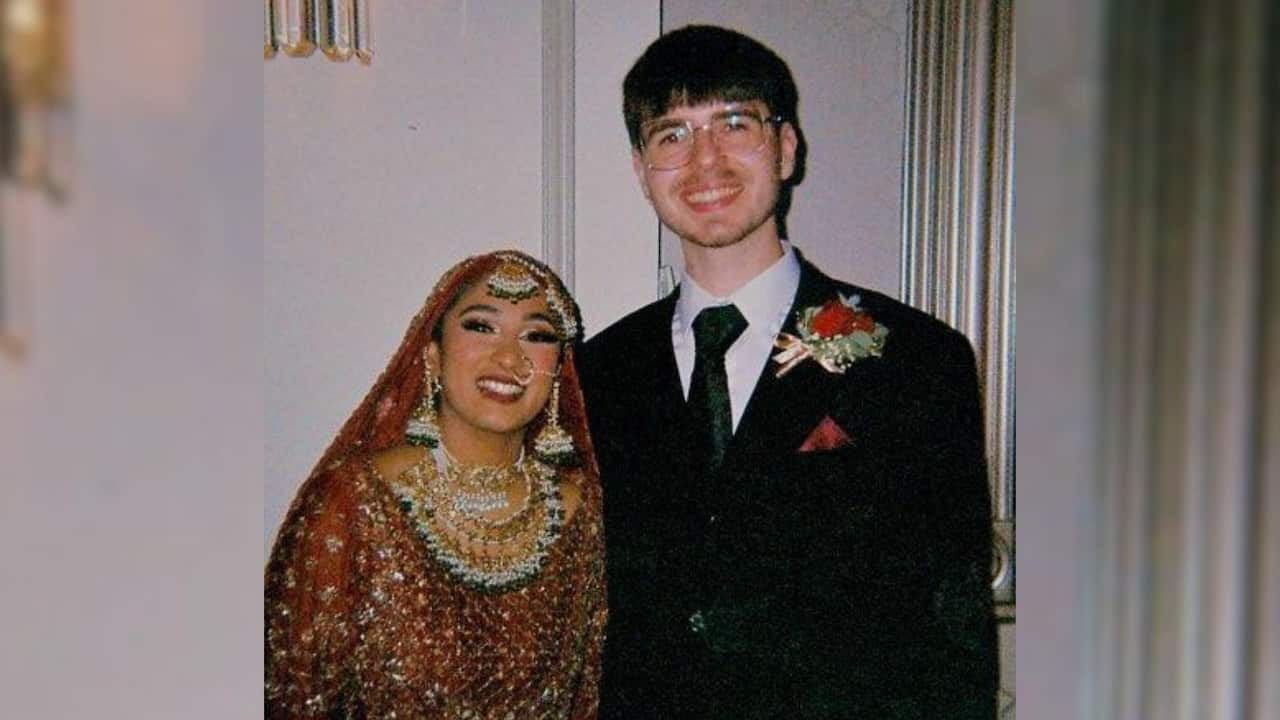
Soaliha and her husband. Source: Supplied
While Soaliha never doubted her faith, she explored what it meant to her as a young adult.
She says that along with generosity, charity and mutual aid being key components of her spiritual and religious expression, community connection was likely a big part of her husband’s decision to convert.
A ‘third space’ alternative?
“And I think religion does offer a very viable alternative for a lot of people.”
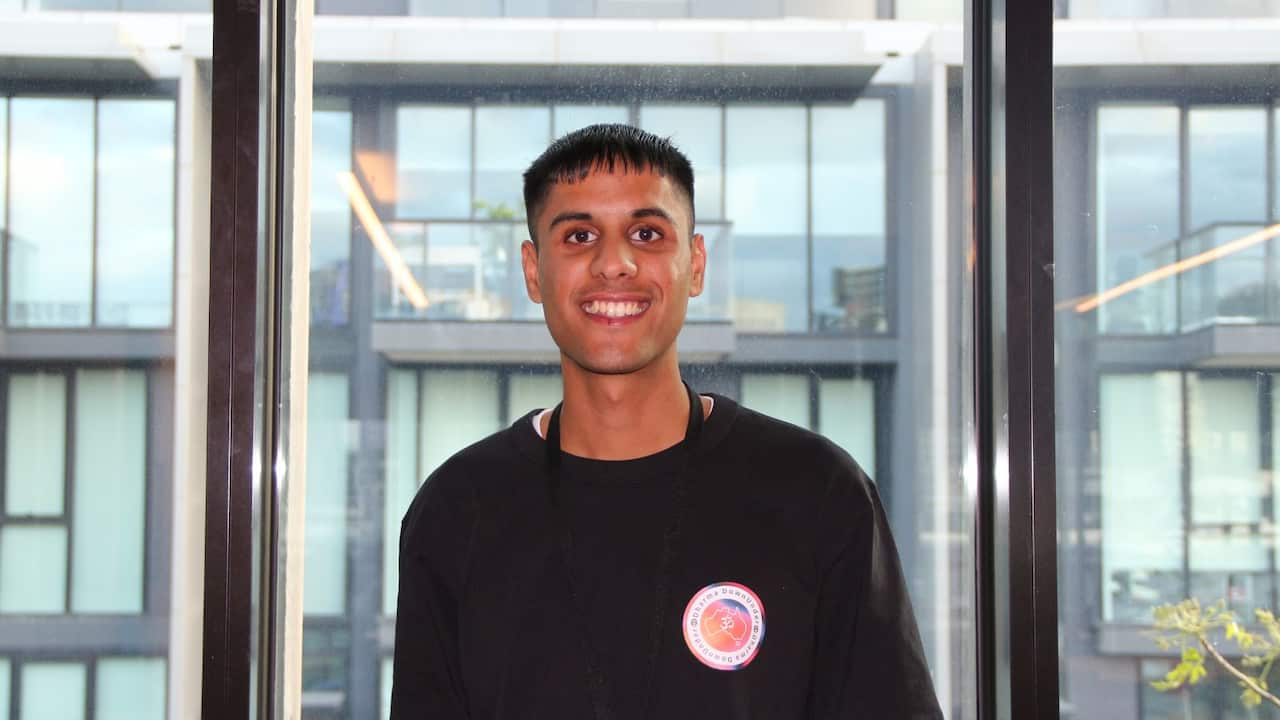
Rajas started the group Dharma Down Under when he was aged 19. Source: Supplied
Rajas was raised by progressive Hindu parents. When he was 19, Rajas started the group Dharma Down Under for people aged 18-30 to meet and search for meaning.
“We look at our scriptures in a very critical way; we’ll discuss the worst parts of them.”


